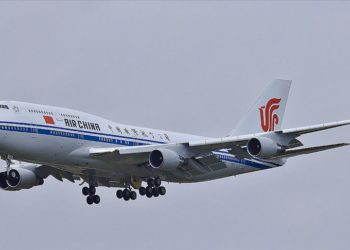 The European Union’s antitrust regulator said on Friday that it had raised objections to a joint venture proposed by British Airways, American Airlines and the Spanish flag carrier Iberia because of concerns it would curtail competition.
The European Union’s antitrust regulator said on Friday that it had raised objections to a joint venture proposed by British Airways, American Airlines and the Spanish flag carrier Iberia because of concerns it would curtail competition.
The European Commission began an investigation in April into whether the deal, announced in August 2008, violated European Union rules against restrictive business practices. Antitrust regulators in the United States are also conducting a review, which is expected to conclude by the end of this month.
Rival airlines have complained that the venture would stifle competition on routes between Heathrow Airport in London and several American cities.
British Airways, American and Iberia, already members of the global Oneworld airline alliance, have proposed a deepening of their existing partnership that would allow them to share revenue and make joint marketing and scheduling decisions on flights between the United States, Mexico, Canada and the 27-member European Union, as well as Switzerland and Norway. The proposed agreement would create a unified network of about 500 possible destinations in more than 100 countries.
Lawyers for the three airlines will spend the next few weeks studying the European list of objections, which are understood to center around the dominant market position that a deal would give British Airways and American Airlines, in particular, on links between Heathrow and destinations like Dallas-Fort Worth, Boston and Miami.
The industry is following the antitrust reviews on both sides of the Atlantic with great interest, especially as the latest downturn in air traffic pushes airlines to shave operating costs and seek new sources of revenue. Similar trans-Atlantic partnerships are already in operation among four members of the Star Alliance — Lufthansa, Continental Airlines, United Air Lines and Air Canada — and the SkyTeam members Air France-KLM, Delta Air Lines and its Northwest unit.
Authorities in the United States have granted antitrust immunity to the Star and SkyTeam deals, while the European Union is still examining those agreements.
Virgin Atlantic, which is owned by Richard Branson’s Virgin Group and is a rival of British Airways, has been among the most vocal critics of a British Airways-American-Iberia deal, saying that it would create a “monster monopoly” with the power to collude on prices and schedules out of Heathrow. Virgin Atlantic does not belong to an airline group, though it has close commercial relations with several Star Alliance members.
British Airways and its partners, meanwhile, argue that their cooperation would expand travel options for passengers and allow for more convenient connections and lower fares.
Paul Marston, a British Airways spokesman, said approval of the venture would also enable its partners to compete with Star and SkyTeam “on a more equal footing.”
The venture is the third attempt in the last decade by British Airways and American Airlines to win approval for a closer partnership. The two previous efforts, in 1997 and 2002, were abandoned after the airlines rejected as too onerous a requirement that they give up as many as 16 daily takeoff and landing slots from Heathrow.
British Airways and its partners now argue that the so-called open skies agreement between the United States and Europe has significantly eased restrictions on access to Heathrow since it went into effect in March 2008, and that competition will continue to increase there after the global economy and air traffic recover.
















